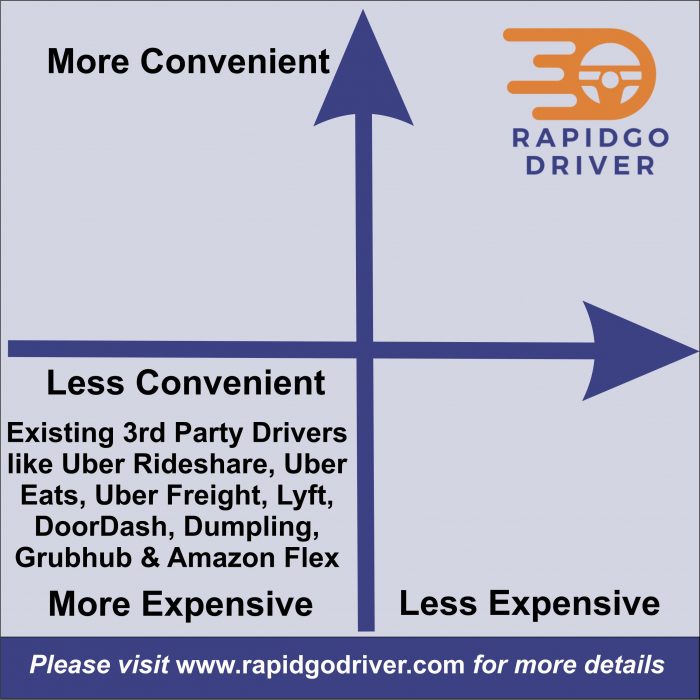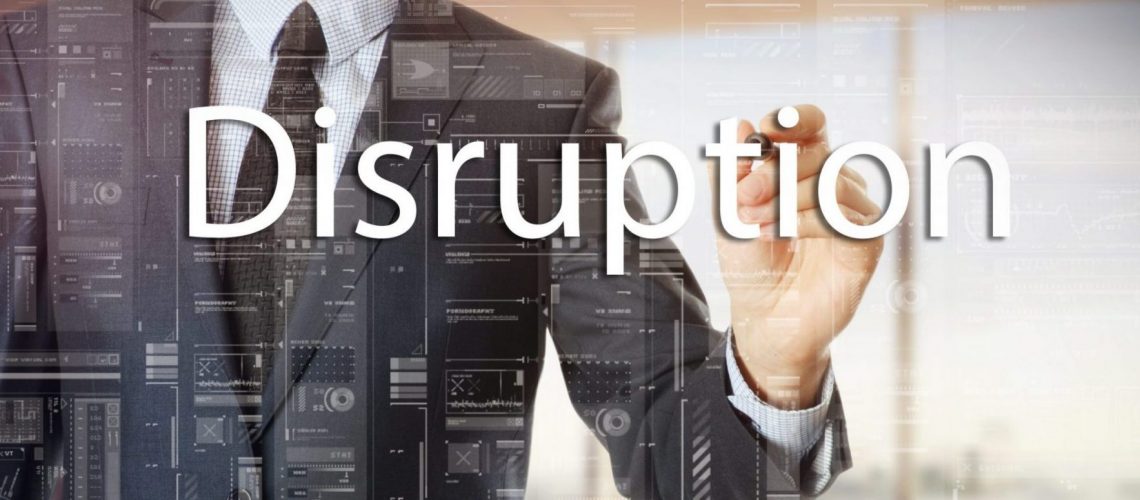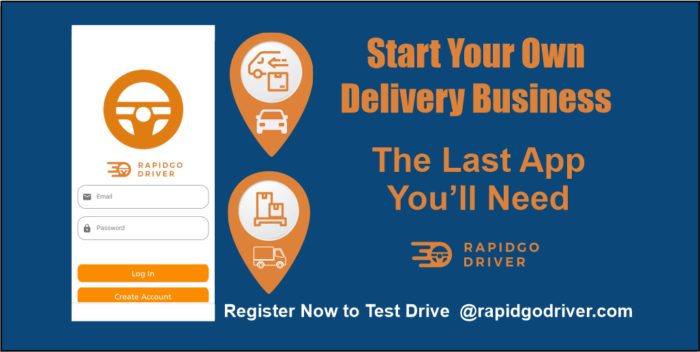Uber’s complex technology review looks at how third-party platforms complicate a simple linear process. While there are many 3rd party delivery platforms, our Rapidgo Driver unique business model offers a highly economical and convenient solution for delivery drivers and the businesses they service in last-mile mobility.

Third-Party Platform Deceptive Practices
Uber’s complex technology has fostered deceptive practices to increase revenue by extracting funds from drivers and restaurants. Chicago has filed lawsuits against DoorDash and Grubhub for intentionally deceiving customers and restaurants alike. The third-party platforms are accused of advertising businesses without their consent and having delivery drivers show up for orders that were not properly placed, limiting drivers’ livelihoods and harming the restaurant’s reputation.
Furthermore, third-party platforms deploy luring tactics of convenience, only to add on surcharges at the last minute. The horrid customer service experiences include returning the overcharges on the next credit card billing cycle.

Financial Impact to Drivers from Platform Algorithms
Doordash, in particular, has settled a District of Columbia lawsuit stemming from withholding delivery driver tips. The cost to the company, $2.5 million. What about the loss of income to the drivers?
Violations of Credit Reporting Act
A recent complaint filed in New York against Uber & Lyft, two of the giant transportation network companies (TNC), along with a consumer reporting agency for an inaccurate background check. A seasoned driver with excellent status was suddenly deactivated for being inaccurately listed as deceased. The financial impact on the driver was devastating.
Many Facebook third-party drivers’ groups are filled with deactivation stories where the drivers faced non-existent recourse and suffered immediate income losses.

Third-Party technology platforms are difficult to adopt
California Proposition 22
In 2020, third-party platform companies like Uber, Lyft, DoorDash, and Instacart bankrolled a $220 million California Proposition 22 ballot. Although the ballot was approved, allowing companies to classify their workers as independent contractors rather than employees, it was later declared unconstitutional.
The purpose of the third-party platforms was to establish a new employment category with minimal benefits favorable to the gig economy giants. Drivers have been divided evenly on the advantages.
The complex proposal would require the creation of a new benefits pool into which third-party platforms would contribute. Defining exactly who would administer and oversee the process has been vague, however, the costs would be felt by customers and drivers alike.
Canadian regulation changes sought
The complex upcoming Uber-model Canadian proposal is for all third-party companies to cooperate by providing each driver’s accurate earnings on each platform to a central administrative entity. Driver benefits for health care and loss of income as independent businesses would be governed by elaborate algorithms proposed by Uber.
The Simple Solution
Uber’s complex technology can be simplified. Imagine Uber. Now, take away Uber. The model simply eliminates the third-party middleman and allows the person requiring a delivery to communicate directly with the driver and pay online directly to the driver including tips. With a subscription for an encrypted app, delivery drivers develop their business with repeat customers for multiple deliveries. Customers find local drivers within the Delivery Driver Directory. Learn how to get started now and download the app for a limited time for FREE HERE.



